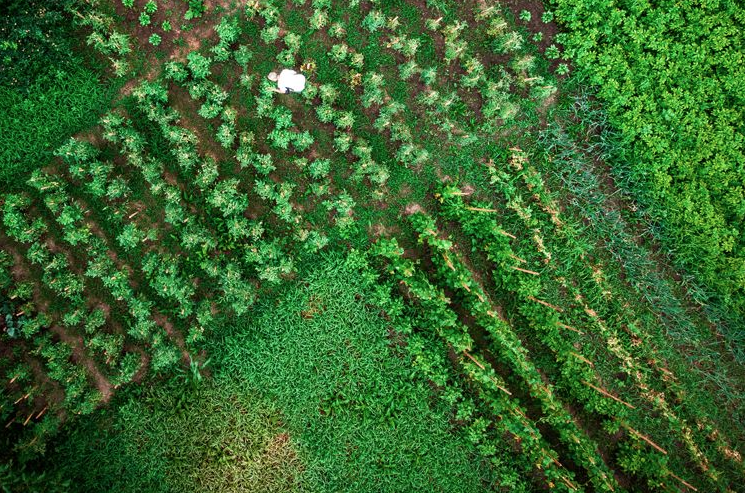Food and Agriculture: Finding Sustainable Solutions
Food and Agriculture: Finding Sustainable Solutions, Old and New
by Mary Beth Gallagher of Domini Impact Investments
An Unsustainable System - One example of a extractive model rooted in extraction and exploitation of nature is industrial agriculture. Our global food systems have been under increasing pressure, with 2.37 billion people around the world without food or unable to eat a healthy balanced diet, a crisis exacerbated by the pandemic and again by the tragic war in Ukraine. The predominant agricultural models are generally run by a few major players, whose monoculture crops, use of chemical fertilizers and pesticides, and long supply chains have climate impacts and often contribute to economic hardship for farmers. An estimated 23 percent of global carbon emissions are from agriculture and land use change. Climate change, water scarcity, and the degradation of biodiversity may result in the loss of seeds and arable land.
Frameworks for Change - All this amounts to a global environmental crisis. A recent UN IPCC report reinforced this urgency, noting that improved land stewardship and afforestation are among our greatest available tools to mitigate climate change. In October 2021, the UN recognized the right to a clean, healthy and sustainable environment as a human right. This encompasses a right to sustainably produced food free of toxins—and, further, calls for meaningful protections for environmental human rights defenders who have fought to protect their land from exploitation.
Drawing Connections at Domini - Regenerative agriculture involves practices that equitably use land to address climate change, biodiversity, soil health, and the well-being of workers and local economies. In 2019, Domini launched its Forest Project, focusing on the systemic importance of forests to environmental systems, businesses, and investments. We recently drew more explicit connections between our forest work and our sustainable agriculture work, recognizing the relevance of our expectations across all. Deforestation and large-scale agriculture plantations result in similar conversion of land, from old growth forests or wild mixed-use purposes, to a single monoculture crop. From a climate perspective, this reduces climate resilience and carbon sequestration benefits. It also erodes soil health and contributes to biodiversity loss. The importance of equity around land rights, food sovereignty, and the rights to self-determination are similarly fundamental.
Read Mary Beth's full article here - https://greenmoney.com/food-and-agriculture-finding-sustainable-solutions-old-and-new
======




